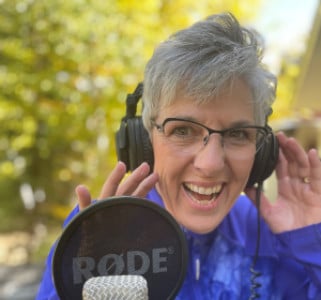United Nations Environment Program Voice Over
Description
Vocal Characteristics
Language
EnglishVoice Age
Middle Aged (35-54)Accents
North American (Canadian - West) North American (Canadian-General) North American (General) North American (US West Coast - California, Portland)Transcript
Note: Transcripts are generated using speech recognition software and may contain errors.
we can all take steps to live sustainably in a way that respects the environment and reduces our impact on the climate. And we all have opportunities to make a difference by what we choose to eat and where, how we build our houses, the energy we use and how we travel. Many of us start our day with a freshly brewed cup of coffee. Yet few of us think about how the coffee is grown or how it gets from a plantation to our kitchen, not to mention the environmental and social impacts that occur along the way. We have choices and our decisions matter. We can opt for organic food and fibers grown without pesticides, that air produced under fair labor and trading practices. If we all did this, we could help improve environmental and working conditions in the long run and contribute to climate action and a circular economy. Standards and labels can help us make choices and give us confidence that we're doing our part. Public organizations have the same options. They can apply social and environmental criteria when making their purchases. This approach is called sustainable public procurement. The European Union public authorities spend around £1.8 trillion each year on procurement of goods and services, which makes up 14% of the EU's gross domestic product. Guidance on green purchasing is available at the European Commission's Environment Web page. If everyone use sustainable public procurement, the benefits for people, economies and the environment would be tremendous. Take schools, for example, in making their buildings energy efficient schools not only save money on operating costs, but also improve the teaching and learning environment. Overall and through the sustainable procurement of meals, desks, supplies and books, schools contribute to a greener and more responsible world. The European Union helps its partner countries make such change happen. Procuring services and products sustainably can be difficult. It may require new knowledge and laws. The European Union for Environment Program helps countries in this process. The United Nations Environment Program, UNDP, one of the U four environment implementing partners, leads this work. UNDP helps check the readiness of markets, raise awareness and increased knowledge among buyers and sellers in the EU's eastern partnership. Countries, with our help, public and private sector alike, will be able to benefit from sustainable public procurement. Let's scale up the green circular economy together
Tags
Announcer, Executive, Girl Next Door, Teacher, Business Woman, Calm, Concerned, Confident, Conversational, Corporate, Educational, Informative, Motivational, Narrator, Helpful, North American (Canadian - West), North American (Canadian-General), North American (General), North American (US West Coast - California, Portland)

 Rising Star
Rising Star